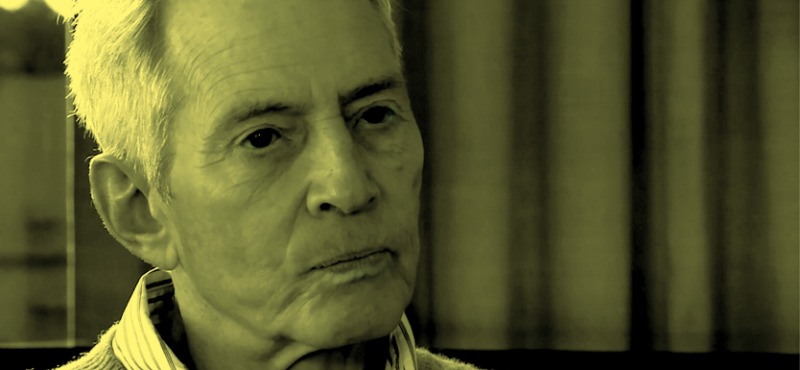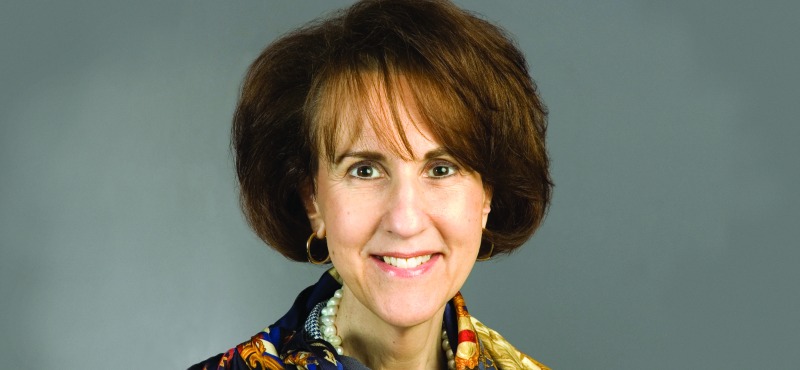Poland's Presidential Election Turmoil: What Next?
May 26, 2020
Warsaw, Poland
Early May saw the postponement of Poland's Presidential Elections after the Prawo i Sprawiedliwość (PiS) led governing coalition failed to agree on how and when they should be organised during the COVID-19 pandemic. Polish voters were then dealt another curveball when the opposition candidate Małgorzata Kidawa-Błońska, from the Civic Platform party (Platforma Obywatelska or PO), withdrew from the race on 15th May. On the same day, Warsaw Mayor Rafał Trzaskowski was announced as her replacement, subject to his ratification as an official candidate – although the gathering of the required 100,000 signatures is seen as a formality.
In this memo, we analyse some of the reasons for this turn of events, and look ahead to how the elections might play out, and what this could mean for the wider political stage in Poland.
Why did Kidawa-Blonska resign?
Kidawa-Błońska's resignation was certainly no surprise. From the very start, her campaign received mixed reviews on both sides of the political divide, and she was criticized for lacking both charisma and a clear vision. Moreover, since the start of the pandemic crisis, her campaigning became very erratic and at one point it was no longer even clear if she was still running.
All this led to a poor performance in the polls (below 5%), meaning PO could ill afford to overlook the second opportunity offered by the election's postponement. While she claims it was her decision to resign, party support had all but evaporated. PO must come at least second in the first round of voting in order to remain the leader of the opposition (which effectively equals political survival) and it was becoming increasingly clear that would not happen with Kidawa-Błońska.
Rafał Trzaskowski: who & why?
Rafał Trzaskowski is considered one of the most talented young politicians in Poland and one of the future leaders of PO, having already held several important posts, including MEP (2009-13), Deputy Minister of Foreign Affairs (2014-15) and Minister of Digitalization and Administration (2013-14), before becoming Mayor of Warsaw in 2018, sweeping to victory in the first round. His biggest personal challenge will be to forge meaningful connections with a wider range of voters, beyond Warsaw. The biggest professional challenge however will be to survive inevitable attacks from other opposition candidates, who were banking on Kidawa-Błońska's low ratings as a route into the second round of voting. Trzaskowski will also, of course, be attacked by politicians from the government coalition, although such criticism will not be credible to his current and potential supporters.
Contrary to his predecessor, Trzaskowski was not elected in the party primaries but was nominated by the party's management. He is very close to PO leader Borys Budka, suggesting his nomination is a calculated move to reinvigorate the PO under its new leadership (Budka took over in January this year). Claims that former Minister of Foreign Affairs Radosław Sikorski was another serious candidate are, we think, more than likely something of a smokescreen, designed to suggest there was more of a contest than in reality.
Trzaskowski's critics, however, argue that he is too elitist and lacks authenticity and charisma, pointing also to poorly-handled recent crises in his office and his frequent statements saying he was not interested in running due to his obligations to Warsaw.
The impact of the change on the election landscape
Although Trzaskowski is not yet formally running, he is already considered the most likely to face Andrzej Duda in the second round of voting. This may aggravate other key opposition candidates (Szymon Hołownia – independent, Władysław Kosiniak-Kamysz - Polish People's Party/Polskie Stronnictwo Ludowe), who before his nomination were faring well in the polls. Kidawa-Błońska and her team were criticised for running a poor campaign: indeed, one of Trzaskowski's first acts has been to fire her campaign advisor (and former advisor to Donald Tusk) Igor Ostachowicz.
We can expect Trzaskowski to be subjected to fierce criticism by other opposition candidates during the first part of his campaign, since this is very much an 'every man for himself' affair. Only in the second round will we see opposition support coalesce around a single candidate, although even this is not guaranteed.
The new election date is not yet confirmed, however the most likely is June 28th. The campaign can only start once the date is officially announced, which is expected to be on June 12th, giving two weeks of campaigning. All the candidates currently registered can compete, while new entrants must gather at least 100,000 signatures of eligible voters after the new election date is revealed. Normally they would have to do this 45 days before the election date, but temporary laws allow the date to be set by the Speaker of the House. It is expected that new candidates may have just a few days to collect the signatures, which makes it impossible for candidates outside the big parties to join at this stage.
Key information on the Presidential elections
These elections are the most popular among the voters, largely because votes are cast for one specific person: voter turnout is usually around 50-65% for the first round of voting and 55-68% for the second (triggered if no candidate secures 50%+1 vote, featuring just the top two candidates and scheduled two weeks after the first round). Only once, in 2000, was the election won in the first round, by incumbent Aleksander Kwaśniewski. It is crucial for any party with political ambition to have a running candidate, with parties often considering a 'good result' one that secures more support than in the parliamentary elections. Success in the Presidential election can also lead to a changing party landscape, with coalitions and even new parties developing.
Likely scenarios
Below we briefly describe five possible outcomes from the election, on a scale of most likely (no1) to least (no5), and their potential impact on the two major parties, PiS and PO. With just 235 from 460 seats, the Government must win this election to avoid further fragmentation should coalition allies retract their support, which would inevitably lead to parliamentary elections.
Recent polls suggest support for Duda is dwindling slightly, while Trzaskowski's is on the rise, albeit mostly so far at the expense of other opposition candidates (Hołownia, Kosiniak-Kamysz and Robert Biedroń of the Lewica/Left party):
- First round: Duda 42-44,8%, Trzaskowski 16-23,2%, Hołownia 9,9-11,4%, Kosiniak-Kamysz 9,3-9,6%;
- Second round: Duda 53-55%, Trzaskowski 45-47%.
1. Trzaskowski loses the elections in the second round
The most likely scenario and one that would strengthen both the current ruling party and the opposition. Though technically a failure for Trzaskowski, it would be considered a strong vote of confidence, given his very short campaign, and could pave the way for him to run in 2025, as he originally planned, cementing his arrival on the national political scene and growing importance within PO. It would also be advantageous for incumbent President Andrzej Duda, who might finally be able to be more independent in his politics. However, this remains the most optimal scenario for the Government and its reform program.
Only once, in 2005, has a challenger candidate won the first round but lost in the second. Any victory in the first round would most likely be a marginal for Trzaskowski, but it would be a huge statement, boosting his popularity and chances for winning in the second. To then fail in the second round, several things would have to occur (not necessarily all at once): other candidates supporting Duda over Trzaskowski, a smaller turnout of pro-Trzaskowski voters in the second round (due to belief that he is going to win anyway), a smaller turnout of the pro-opposition voters (due to disappointment that their original candidate did not make it).
2. Trzaskowski wins the elections in the second round
This scenario is most likely if Trzaskowski comes first in the first round, pitting him into a run-off against Duda. In the long-term, this would mean a significant shift in Polish politics. Short term, it would bring chaos: PO would be significantly strengthened, the leadership of the President's Chancellery and Bureau for National Security (BBN) would be purged and the new President would try to stall almost all legislation and nominations coming from parliament.
If Trzaskowski wins and the Senate remains in the hands of the opposition, governing would become practically impossible and the Government would most likely call for early elections. On the other hand, being an effective President would be difficult for Trzaskowski: all his proposals would be easily dismissed by the Government, so he would almost certainly be a supporter of early elections.
In this scenario, Warsaw would of course need a new Mayor. Since all the deputy mayors have to resign with Trzaskowski, new elections would need to be called within six months of his resignation. In the meantime, the City would be managed by a State-appointed commissioner, hence why many opposition politicians, particularly former Warsaw Mayor Hanna Gronkiewicz-Waltz (PO), fear losing Warsaw to the governing PiS. There is also speculation that PO would propose Kidawa-Błońska as its Mayoral candidate.
3. Trzaskowski comes second but Duda wins in the first round
This was a far more likely scenario for PO when Trzaskowski was not running and the popularity of Andrzej Duda was sky-high. It is still perfectly possible, though, especially if other opposition candidates decide to attack each other, which would not only split the vote but also discourage many pro-opposition voters from voting at all. However, this scenario also requires a successful mobilization of pro-government support. Such a result would reaffirm the position of the PiS-led government coalition and Andrzej Duda (and help him become more independent, see scenario 1). It would also be damaging to the PO and its candidate, and possibly also to other opposition parties, leading to calls for more unity among the opposition and parties' reforms.
4. Trzaskowski comes third (or lower) in the first round
Trzaskowski's closest rivals in the first round are Władysław Kosiniak-Kamysz (Polish People's Party, Polskie Stronnictwo Ludowe - PSL) and Szymon Hołownia (Independent). Both have tried to position themselves as new opposition leaders and so have plenty invested in seeing Trzaskowski fail. If the PO's candidate fails to secure second place, it would mean they are no longer the second most important party in Poland and the leader of the opposition. This could lead to further reforms of the party and possibly even the creation of a new one. As for the other candidates, it would bring no immediate benefits: neither has sufficient parliamentary support to build significantly on any shock result. Short term, this scenario would also almost certainly see Andrzej Duda winning the second round.
5. Trzaskowski wins the elections in the first round
It is very rare to win presidential elections in the first round and practically impossible for a challenger candidate. For Trzaskowski to do so, other serious opposition candidates would have to resign well ahead of the election, transfer their support to him and actively engage in his campaign. This is very unlikely, although had already been proposed by some renowned figures outside of politics when Kidawa-Błońska was still running. In addition, there would need to be a successful mobilization of large numbers of anti-Law and Justice (PiS) voters. Trzaskowski has already successfully used such tactics in the local elections, however they might be hard to reproduce on the national level, since nationally PiS still has a majority of popular support. If Trzaskowski wins, though, this would bring political chaos in Poland and potentially the end of the government coalition (see scenario 2 for details).
Please click here to download the memo.
For further information or to discuss the contents of this paper, please contact us via phone:
+36 70 733 9470 or e-mail: cee@kesarev.com


















